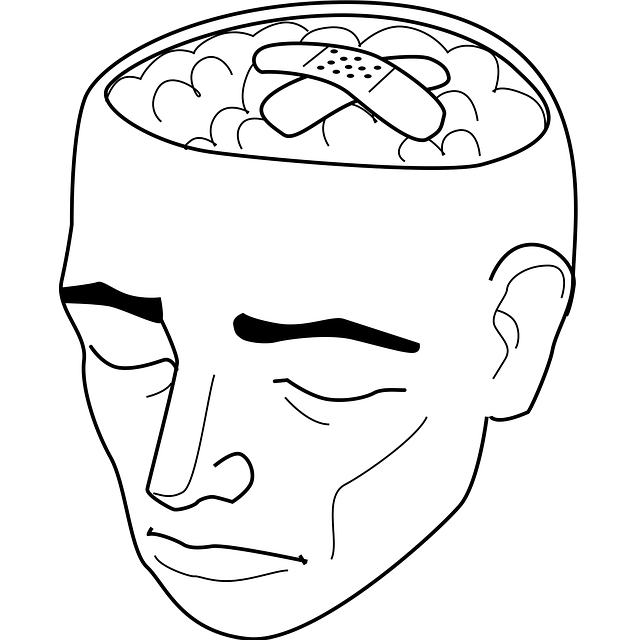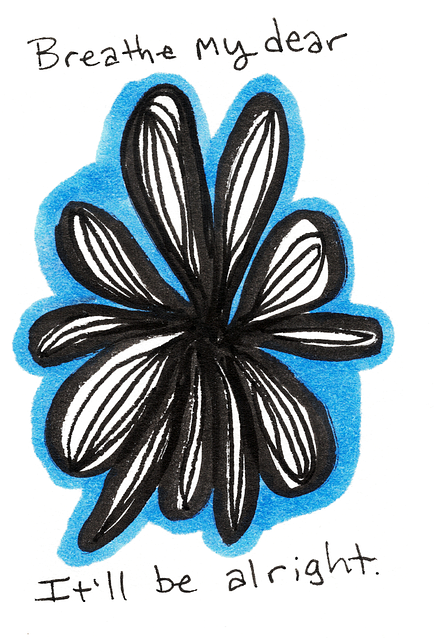Mental health professionals in Golden Young Adults Therapy (GYAT) face challenges like high stress, trauma exposure, and burnout risk. To mitigate these, GYAT should implement strategic practices such as Mental Wellness Podcast Series, Stress Management Workshops, self-care initiatives, structured work-life balance, Conflict Resolution Techniques training, and Mental Wellness Journals. Proactive risk management through staff training on emotional intelligence and trauma-informed care ensures therapists can identify and address emerging risks promptly. Open communication, feedback sharing, and evidence-based protocols foster a dynamic learning environment, enhancing both practitioners' well-being and the therapeutic experience for clients.
Mental health professionals face unique risks, from high-stress environments to potential exposure to traumatic experiences. Effective risk management planning is essential for maintaining a healthy work-life balance and ensuring quality care. This article explores tailored strategies for Golden Young Adults Therapy (GYAT), delving into understanding specific mental health risks, developing robust risk mitigation plans, and implementing continuous improvement processes. By adopting these practices, GYAT practitioners can enhance resilience and foster a supportive therapeutic environment.
- Understanding Risks Specific to Mental Health Professionals
- Developing a Comprehensive Risk Management Plan for Golden Young Adults Therapy
- Implementation and Continuous Improvement Strategies
Understanding Risks Specific to Mental Health Professionals

Mental health professionals often find themselves navigating complex emotional landscapes with their clients, which can lead to unique risks and challenges. These include high-stress levels, exposure to traumatic stories, and the potential for burnout. Understanding these specific risks is paramount for any mental health practice, especially those catering to young adults through initiatives like Golden Young Adults Therapy. This demographic often faces pressures related to academic expectations, identity formation, and social media influence, which can exacerbate existing mental health issues.
The pressure to provide effective therapy while managing one’s own emotional well-being requires strategic planning. Implementing activities such as Mental Wellness Podcast Series Production or hosting Stress Management Workshops Organization can foster a supportive environment for professionals to process their experiences. Additionally, empathy-building strategies are essential tools to prevent burnout and enhance the therapeutic experience for both practitioners and clients alike.
Developing a Comprehensive Risk Management Plan for Golden Young Adults Therapy

Developing a risk management plan is an integral part of ensuring the well-being and effectiveness of Golden Young Adults Therapy (GYAT) practitioners. This comprehensive strategy should address the unique challenges faced by healthcare providers specializing in mental health support for young adults, including potential risks related to case load size, client complexity, and emotional demands.
A robust plan can incorporate burnout prevention strategies such as regular self-care practices and structured work-life balance routines. Encouraging therapists to maintain a Mental Wellness Journaling Exercise can help them process complex emotions and reflect on their experiences, fostering resilience. Additionally, integrating Conflict Resolution Techniques into the training curriculum empowers professionals to navigate challenging interactions with clients or colleagues constructively, further mitigating risks.
Implementation and Continuous Improvement Strategies

Implementing effective risk management strategies requires a proactive approach within mental health practices, especially when catering to the unique needs of young adults. At Golden Young Adults Therapy, we recognize that each client’s journey is distinct, necessitating tailored interventions. To achieve optimal results, our team employs a cyclical process of assessment, planning, and review, ensuring continuous improvement in risk management.
Regular staff training sessions focus on enhancing emotional intelligence and trauma-informed care practices, empowering professionals to recognize and address emerging risks promptly. By fostering an environment that encourages open communication and regular feedback, we facilitate a dynamic learning process. This includes sharing best practices, case studies, and research findings related to mood management techniques and innovative Trauma Support Services, ensuring our protocols remain up-to-date and evidence-based.
Mental health professionals, like those providing Golden Young Adults Therapy, operate in an environment that can present unique risks. By understanding these risks and implementing a robust risk management plan, therapists can create a safer, more supportive space for their clients. The strategies outlined in this article, from identifying specific mental health industry hazards to continuous improvement, empower professionals to navigate challenges effectively. Adopting these practices ensures the well-being of both therapists and the young adults they serve, fostering an optimal environment for healing and growth.














